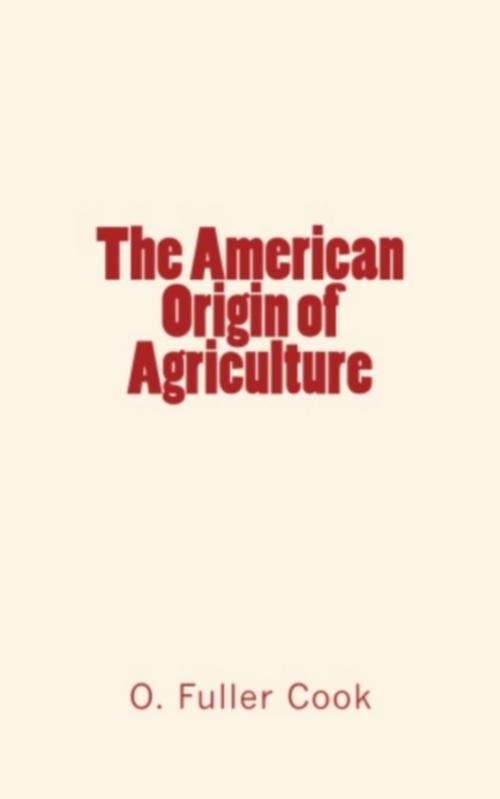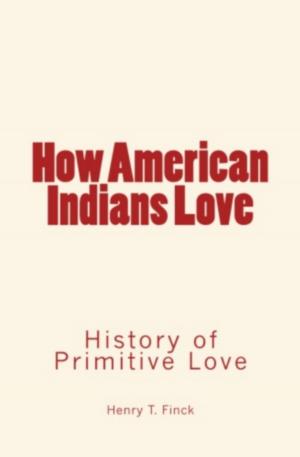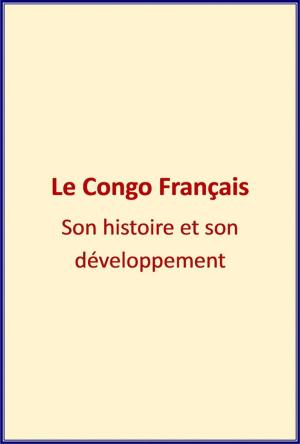The American Origin of Agriculture
Nonfiction, Science & Nature, Nature, History, Americas, United States| Author: | O. Fuller Cook | ISBN: | 9782366592504 |
| Publisher: | Editions Le Mono | Publication: | September 9, 2016 |
| Imprint: | Editions Le Mono | Language: | English |
| Author: | O. Fuller Cook |
| ISBN: | 9782366592504 |
| Publisher: | Editions Le Mono |
| Publication: | September 9, 2016 |
| Imprint: | Editions Le Mono |
| Language: | English |
With the exception of the banana, the cultivated plants which were shared with America by the natives of the islands of the Pacific and of the old world tropics appear to be of American origin, and the wide distribution of these plants in the east and the relatively recent domestication of the old world root crops and cereals accord with the suggestion that the agricultural skill and compact social organization of a primitive American culture race were transferred to southern Asia during the movements of conquest and colonization which spread the Malayo-Polynesian linguistic stock from Hawaii and Easter Island to Madagascar and southern Arabia, but long anterior to existing peoples or languages. The cocoanut which affords so direct an intimation of American origin has already explained the failure of those who have attempted to demonstrate identity of languages, customs and arts on the two sides of the Pacific, but also condemns the equally erroneous attitude of others who refuse, in the absence of such identity, to accept the countless trans-Pacific similarities as indications of affinity or common origin. The distribution and uses of the tropical cultivated plants support the belief of ethnologists in the truly indigenous character of the peoples, agricultures and civilizations of the new world, but they also testify to a very early colonization of the islands of the Pacific and Indian oceans from tropical America... If we may not know where man first began to encourage the growth of the plants which furnished his food, we are not without numerous indications that agriculture proper, together with the agricultural organization of human society which lay behind modern civilization, originated in America and has now completed the circuit of the globe.
With the exception of the banana, the cultivated plants which were shared with America by the natives of the islands of the Pacific and of the old world tropics appear to be of American origin, and the wide distribution of these plants in the east and the relatively recent domestication of the old world root crops and cereals accord with the suggestion that the agricultural skill and compact social organization of a primitive American culture race were transferred to southern Asia during the movements of conquest and colonization which spread the Malayo-Polynesian linguistic stock from Hawaii and Easter Island to Madagascar and southern Arabia, but long anterior to existing peoples or languages. The cocoanut which affords so direct an intimation of American origin has already explained the failure of those who have attempted to demonstrate identity of languages, customs and arts on the two sides of the Pacific, but also condemns the equally erroneous attitude of others who refuse, in the absence of such identity, to accept the countless trans-Pacific similarities as indications of affinity or common origin. The distribution and uses of the tropical cultivated plants support the belief of ethnologists in the truly indigenous character of the peoples, agricultures and civilizations of the new world, but they also testify to a very early colonization of the islands of the Pacific and Indian oceans from tropical America... If we may not know where man first began to encourage the growth of the plants which furnished his food, we are not without numerous indications that agriculture proper, together with the agricultural organization of human society which lay behind modern civilization, originated in America and has now completed the circuit of the globe.















